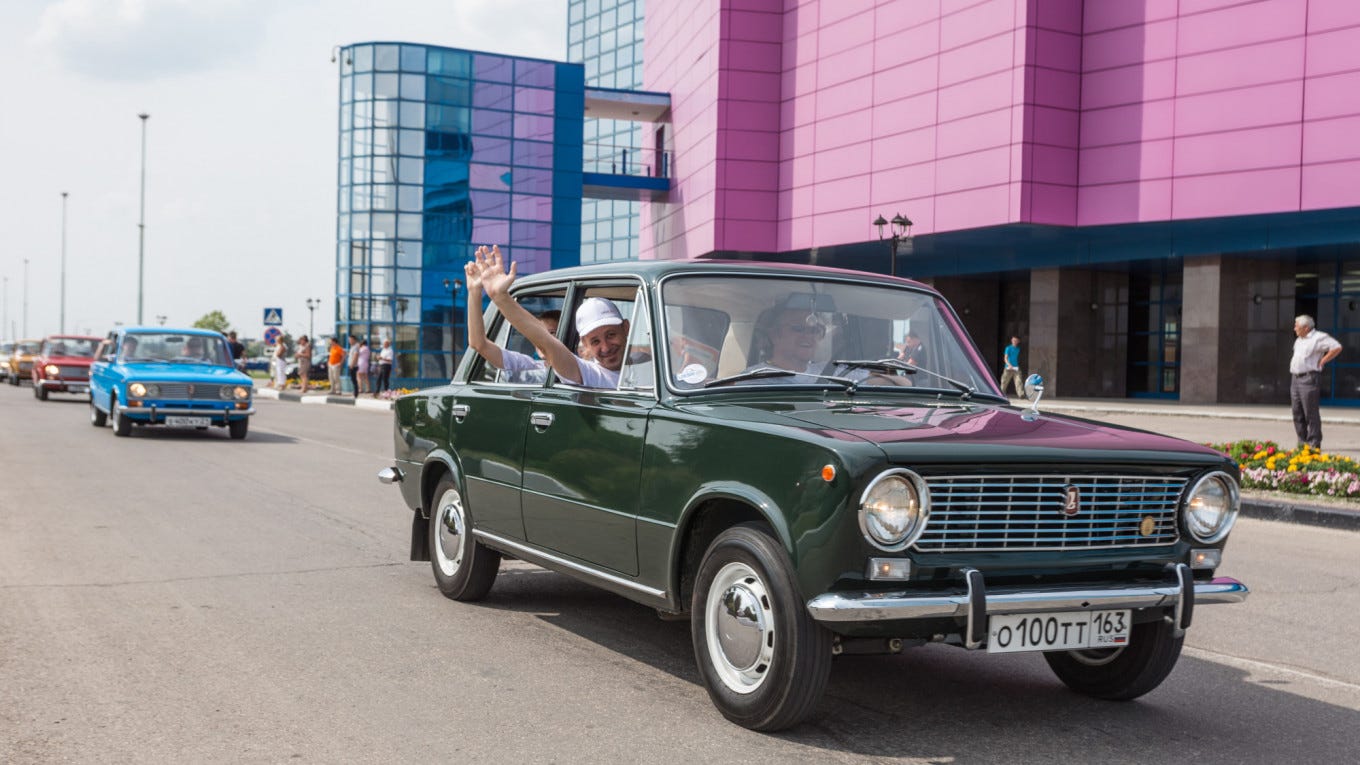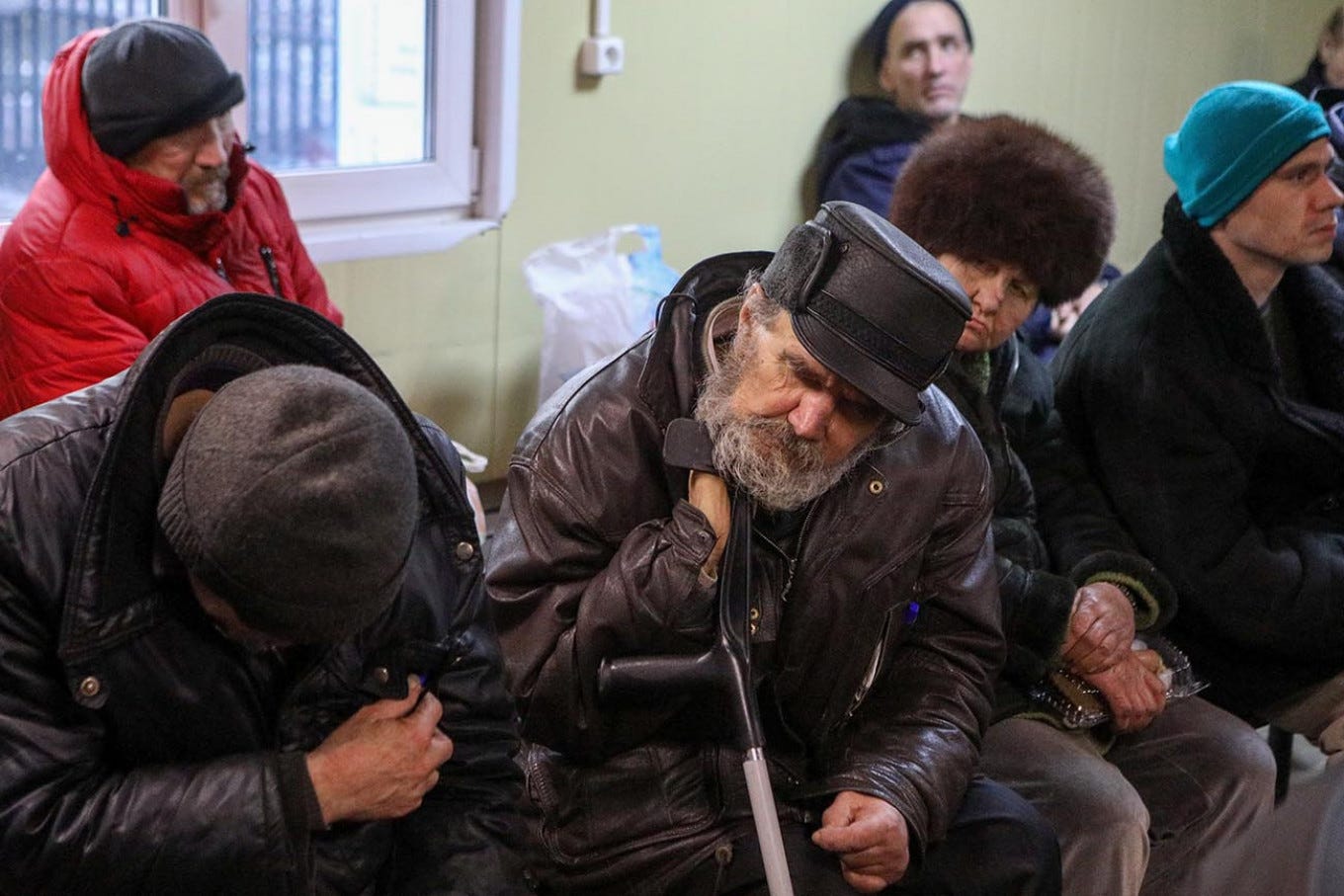At first things began smoothly. Anatoli Sovoiski's small business near Moscow which specialized in maintaining and fixing cars was thriving. He could barely keep up with the soaring demand to fix cars. As his business rapidly expanded, he could afford to move out of his garage to rent bigger premises in town. He even urgently required new staff.
Unfortunately, that was what appeared to be a persistent problem. Finding competent and reliable mechanics wasn't easy!
Everything that could go wrong, did! For instance, one mechanic he hired went on a week-long drinking binge just after receiving his wages. Another mechanic just could not do the job. “Never mind, he can learn on the job,” thought Anatoli. But then he began to find car parts and work tools began to go missing. So he installed special surveillance cameras. To his horror, he found that the mechanic was stealing from the garage. Instead of calling the police, he thought it best just to fire and forbid the mechanic from the workplace .
Another mechanic he employed proved inept. Although he did not drink, came to work punctually and did not steal, he tended to damage rather than repair cars. Anatoli called him the master-breaker! Anatoli stated, “Generally speaking I had no success finding any good specialists; there were none in sight.”
Then one day a woman who looked around 40 turned up at the garage. She was dressed so badly that Anatoli thought she was 'bomzhi' or homeless. She introduced herself as Maria and asked if she could get any work. She was willing to do any work. There was an air of desperation about her. It was clear that she had been through a lot. Anatoli recalled, “She explained to me her husband had badly beaten her and her daughter. She had one day reached her limits and with her daughter, fled from him.
Maria went where 'her eyes took her' {a common idiom used in Russian folk tales}. With her last savings she had rented a room with a little bit of cash left over. But this money was due to run out. Unless she found work soon, she could find herself on the streets. In Moscow and most towns there are practically no refuges or shelters for women fleeing from domestic violence. Anatoli, feeling sorry for her, decided to employ her as a cleaner.
Then a strange incident happened. Maria was coming to wash the floor with her bucket of water and mop and noticed a mechanic trying to fix a car. But he was going about his work in the wrong way. Maria immediately grasped the problem and stopped to point something out in the engine, saying something to the guy working on the vehicle. The mechanic did not like this. He angrily and rudely answered, “You just wash the floor; this is my job”'
Anatoli witnessing all this then approached Maria and asked her some questions about the problem with the car. He was taken aback by her detailed knowledge. It turned out she knew all the intricate details of cars and how to fix them. Anatoli's hair stood on end when she revealed her expertise. How could this be? Why had she not told him about her skills? It was surprising to find how modest she was. Maria had kept her special skills a secret. While many 'specialists' overestimated their skills or made unfounded claims, Maria did not boast of this at all.
But Maria's skills were no accident. Since the Soviet time her father had worked at Takso Park and taught her how to fix vehicles. She had many years of experience. It seemed that Anatoli's prayers were answered. He had found the ideal specialist. He immediately employed her as a mechanic, and things worked well for both of them. Anatoli stated, “Since then I come from time to time to get advice from Maria about how to fix cars. She agrees to help me, and with great joy.”
Helping Maria and her daughter avoid the cruel fate of homelessness turned out to have unanticipated results that Anatoli could never have imagined.
Note: The domestic violence which Maria and her daughter experienced continues to soar in Russia as well as in many parts of the world. Women have long been oppressed by the weight of old customs and traditions maintained to keep women subject such as a custom where a father-in-law would give as a gift a whip to her 'husband to be', to carry on lashing her for disobedience as well as proverbs such as 'To love your wife means to beat her'. Violence against women has increased under the influence of Covid 19, the impact of the conflict in Ukraine as well as a law passed by the Duma in 2017 which partially decriminalized domestic violence against women.
Whereas previously men who beat women could receive a maximum prison sentence of 2 years, now they are subject to a 30,000 ruble fine. Maria Pisklakova who is the head of a charity called 'The Anna Center' stated women are often not likely to report being abused. In regard to the 2017 law, she stated, “This decision sends a message that the state doesn't consider domestic violence as a criminal offence and a violation of women's human rights. The decriminalization is a signal that domestic abuse is not a serious issue and inevitably it gives perpetrators a greater sense of impunity.”
Incredibly, victims of domestic abuse are made to pay the fines for their own abuse! This is despite the fact that domestic violence in Russia kills one woman every hour. And the scale of this problem is huge. As many as an estimated 16 million women in Russia are abused.
Not surprisingly, such domestic violence is a leading cause of much homelessness.
It goes without saying that a immense radical education program is urgently required to address current levels of abuse as well as to prevent potential violation.
.
.
Additional notes:
1. If you can read Russian, you can read about Anatoli's Story “My Best Mechanic.” Лучший Механик, Анатолий Совойский, невыдумнные Истории, number 24, июнь 2024.
2.See the research by sociologists Irina Gurchakon and Irina Shurygine, “Domestic Violence against Wives and Distribution of Power: The Case of Russia,” 2002-2003, freely available on the internet.




